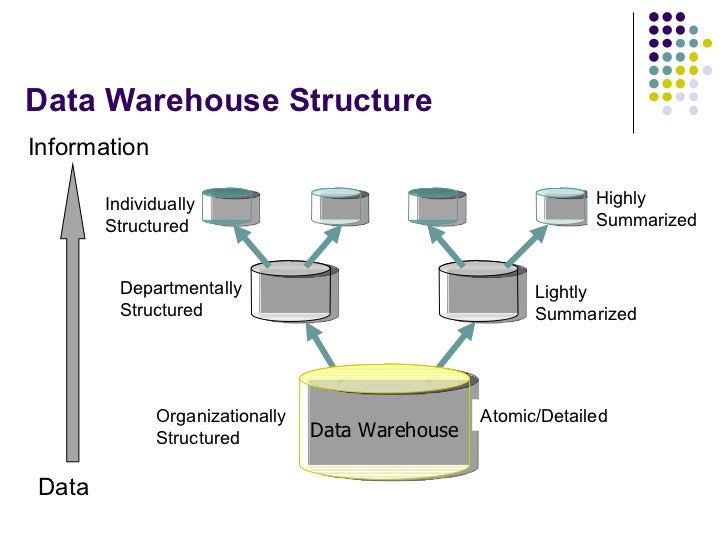- older detail data,
- current detail data,
- lightly summarized data, and
- highly summarized data.
Older detail data represents data that is not very recent,
maybe as old as ten years or longer. It is voluminous and
most frequently stored on mass storage such as tape,
although more expensive disk storage may be used. Its
level of detail is consistent with current detail data (see
later description), but due to its longer time horizon is
typically migrated to a "less-expensive" alternate storage
medium.
Current detail data represents data of a recent nature and
always has a shorter time horizon than older detail data.
Although it can be voluminous, it is almost always stored
on disk to permit faster access.
Lightly summarized data represents data distilled from
current detail data. It is summarized according to some unit
of time and always resides on disk.
Highly summarized data represents data distilled from
lightly summarized data. It is always compact and easily
accessible and resides on disk.
A final component of the data warehouse is that of
metadata. Metadata is best described as data about data.
Simply put, it provides information about the structure of
a data warehouse as well as the various algorithms used in
data summarizations. It provides a descriptive view, or
"blueprint", of how data is mapped from the operational
level to the data warehouse.
